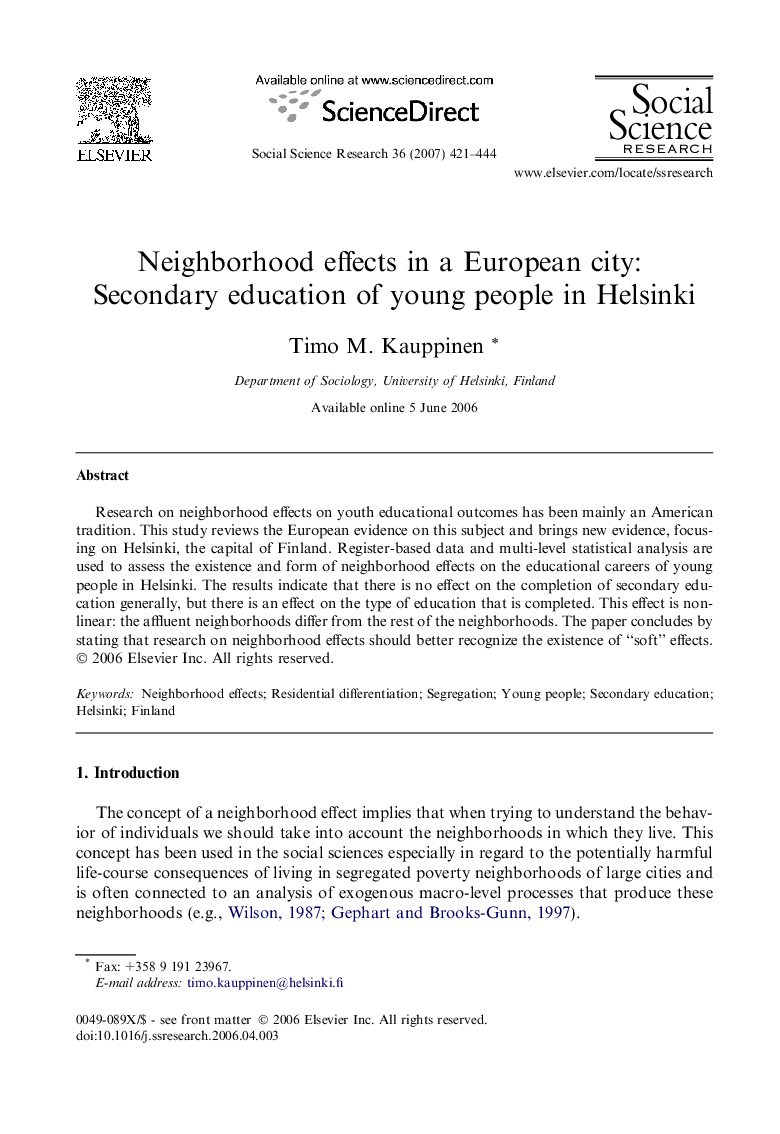| Article ID | Journal | Published Year | Pages | File Type |
|---|---|---|---|---|
| 956490 | Social Science Research | 2007 | 24 Pages |
Research on neighborhood effects on youth educational outcomes has been mainly an American tradition. This study reviews the European evidence on this subject and brings new evidence, focusing on Helsinki, the capital of Finland. Register-based data and multi-level statistical analysis are used to assess the existence and form of neighborhood effects on the educational careers of young people in Helsinki. The results indicate that there is no effect on the completion of secondary education generally, but there is an effect on the type of education that is completed. This effect is nonlinear: the affluent neighborhoods differ from the rest of the neighborhoods. The paper concludes by stating that research on neighborhood effects should better recognize the existence of “soft” effects.
